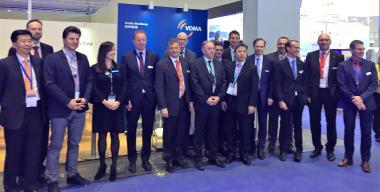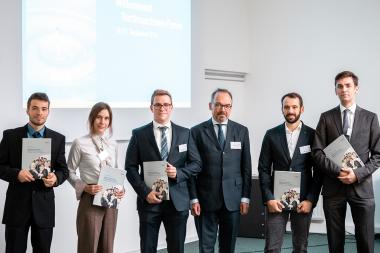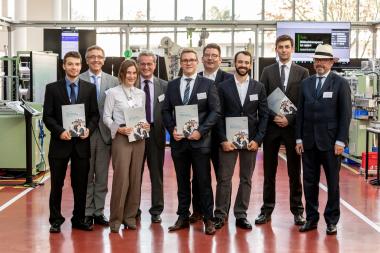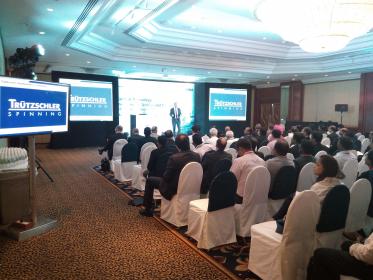VDMA: Original technology makes the difference
ITMA ASIA + CITME 2018, Asia’s foremost trade fair dedicated to textile machinery, is once again marked by a significant presence of German companies both in their number and in the quality of their technology. Visitors to the fair will have an opportunity to appreciate the high level of technology being proposed by more than 100 exhibitors from Germany, including more than 80 VDMA member companies. They cover nearly all different machinery chapters with a focus on spinning, nonwoven, weaving, knitting, warp knitting and finishing. The overall exhibition space occupied by German machinery manufacturers is more than 7,000 square meters, confirming Germany’s leading position among exhibiting foreign countries. The German exhibitors increased their booth space by approximately 15 % compared to 2016.
“Choose the original - Choose success" is the message of the VDMA Textile Machinery at this trade fair. On the occasion of the VDMA press conference on the opening day of ITMA ASIA, Ms Karin Christine Schmidt, Technical Director VDMA Textile Machinery, emphasised: “Copycat machines may look similar to the systems they are designed to emulate. But only originals do not simply follow but are pacesetters of technological progress.” Original technology is a keystone of innovation. It has the potential to successfully turn visions of entirely new possibilities in the textile production into reality.
This approach is visualised at the VDMA booth. The stand achieves attention and emotion through the picture motif: Neuschwanstein Castle. This world-famous tourist magnet is more than that: it is also a successful original. A vision, which could be successfully implemented in the long term through innovation and technology!
During the press conference, 18 spokespersons of renowned VDMA member companies showed how original technology can indeed play a major role in China’s and other Asian nation’s efforts to increase the resource efficiency of the textile industry and to interconnect information technology and manufacturing processes.
Topics of the companies included automation, performance improvement, quality, sustainable solutions (raw material, energy, water saving), Industry 4.0 (in China called intelligent manufacturing), digital AR/VR services, platforms and software.
You are welcome to explore the speakers' statements in the atached PDF.
VDMA Textilmaschinen









